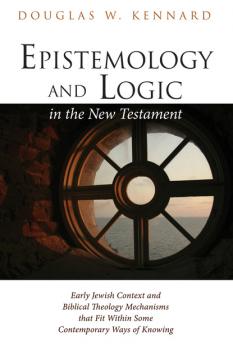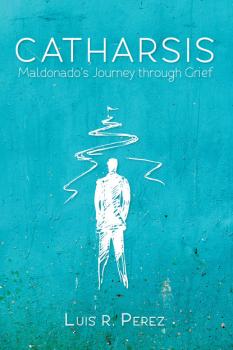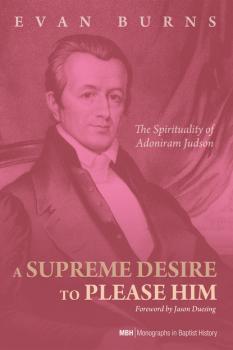MREADZ.COM - много разных книг на любой вкус
Скачивание или чтение онлайн электронных книг.Epistemology and Logic in the New Testament
Biblical contributors express an oral stage engaging Christianity within a properly basic communal worldview similar to Alvin Plantinga advocates. This approach includes a communal Christian application of common sense realism within a worldview and rhetoric similar to Hillite Pharisaism. Each biblical contributor provided vivid testimony using rabbinic language and thought forms. For example, Jewish-Christian midrash re-appropriates Old Testament quotes and narrative in a new performative pesher manner to present Jesus as the Christ. Moving beyond the word studies of biblical epistemologists, Pharisaic-rabbinic Judaism use of biblical revelation, mystical vision, dream, or audible divine voice frame mystical empiricism similar to William Alston. Non-foundational realism facilitates a communal resilient oral tradition similar to the rabbinics. Additionally, Luke-Acts extensively engages Hellenistic historiographic method and the concept of «witness.» When multiple interpretations occur concerning miracles, epistemic dualistic non-foundational Lockean epistemology emerges to contribute to the authority of communal kingdom testimony. Occasionally, this Lockean approach adds an internal transformation much as Jonathan Edwards modified Locke to set forth his religious affections as a divine virtue epistemology confirming the authentic narrow way through Peircean pragmatism. This internal knowledge provides self-referential confirmation for a personal relationship and filial knowledge. Each of these expressions of knowledge fosters an ultimate Kierkegaardian commitment to the Trinitarian Christian God.
Confessing the Faith Today
With the understanding that confession is a witness to the gospel, Confessing the Faith Today investigates how a sixteenth-century Reformation confession, the Belgic Confession, can assist contemporary Christians testify to the truth of Gods gracious turn toward creation and do so in the context of the twenty-first century's competing claims. A close examination of the internal coherence of the Belgic Confession, along with an exploration of how that confession might engage contemporary life, offers fresh insight into how Christians might articulate what is at stake in the gospel. Janssen encourages the church to enter a conversation with the forebears of the faith, acknowledging the historical nature of not only the confession but of God's involvement in all creation.
More Than the Sound of Many Waters
Within each of us are emotions that scale the heights of praise then sink so deep we are beyond the reach of light. In those depths we hold a notion that we cannot lift ourselves out, but there must be a power that can save. «Follow me,» Jesus said. From the first immersion that birthed earth from water, to the Hebrew mikveh that requires baptism in a natural body of water, to the Pentecost immersing believers into the age of the church, water is the signature of God. The ocean is the heartbeat of earth, covering 70 percent of the planet, pulsing warmth to the continents, wearing the moods of the sky, answering only to heaven. As the ocean becomes laden with contaminants and the bonds of family unravel, science and scripture merge in an ongoing conversation about the water that both separates and unites humanity. More Than the Sound of Many Waters reflects the challenge for us to let go of the shore, entirely submerge, breathless and weightless, transforming beyond the shallows into the covenant of salt. The water of judgment is held back as the people of God pass through.
Catharsis
Grief can do terrible things to us. It can hold us still in time and skew our perspective. That is the case with William Maldonado, who grieves the loss of his father as a child to war; the loss of his mother as a young adult to an illness; the loss of an opportunity to pursue a doctoral degree, and the loss of his professional reputation to an accusation of committing insurance fraud. Subterranean sorrow leads Maldonado to make wrong-minded decisions that eventually lead him to prison and then to a half-way-house. One day, as he tries to understand his grief, he blames the world, and, in particular, a former business partner. Full of rage, he returns to the city where he experienced his deepest wounds. Upon his return, he discovers that his former business partner, now a Pentecostal minister, emerged unscathed from the insurance fraud scandal that sent him fleeing for a decade. That discovery thrusts Maldonado on a path of revenge and into the roiling world of church politics, where he joins a secession group that wants to fire his former partner. It takes the whims of fate and new friendships for Maldonado to experience clarity of purpose.
Postils for Preaching
Postils for Preaching repristinates an old term for commentaries on the appointed texts by assisting preachers in their time-honored calling of preaching the Word. «Post illa,» some think, probably refers to the reflecting «after this» (meaning upon the texts) that preachers must do in the context of the lives of their congregations and larger communities. These essays do not aim to be sermons but sermon-starters, goads and incitements to consider the assigned texts with serious imagination and good humor, all in the context of the church year and its inter-textual connections. The intention of this publication is to dip into a lifetime of that exegetical and homiletical «bag of tricks» as Jesus himself obliquely recommended when he noted how «every scribe who has been trained for the kingdom of heaven is like the master of a household who brings out of his treasure what is new and what is old» (Matt 13:52). Please consider these postils a «thesaurus» («treasury») from which to borrow insights, references, and allusions as needed and found of value.
Orientation to the History of Roman Judaea
No field of study is livelier than the history of Roman-era Judaea (ca. 200 BC to AD 400). Bold reinterpretations of texts and new archaeological discoveries prompt us constantly to rethink assumptions. What kind of religion was Judaism? How did Jews–and Christians–relate to Roman imperial power? Should we speak of Judaism or Judaisms? How should the finds at Qumran affect our understanding? Did Paul and other early Christians remain within Judaism? Should we translate Ioudaioi as «Jews» or «Judaeans»? These debates can leave students perplexed, this book argues, because the participants share only a topic. They are actually investigating different questions using disparate criteria. In the hope of facilitating communication and preparing advanced students, this book explores two basic but neglected problems: What does it mean to do history (if history is what we wish to do)? And how did the ancients understand and describe their world? It is not a history, then, but an orientation to the history of Roman Judaea. Rather than trying to specify which questions are good ones or what one should think about them, the book offers new perspectives to help unleash the historical imagination while reckoning squarely with the nature of our evidence.
Marking the Church
More than one person has joked over the years that Evangelical believers do not have an ecclesiology. In one sense, that is absurd: Evangelical churches (especially if you include Pentecostals in that group) are some of the fastest-growing, most vibrant churches in the world. Evangelicals are proclaiming the gospel, praising the Lord, reading the Bible, and loving the poor. But there is a case to be made that the Evangelical devotion to the mission of the church has left Evangelicals with little time to reflect on the church itself. In this collection of essays, first given at annual meetings of the Evangelical Theological Society, the authors take time to reflect on the nature of the church in an Evangelical context, asking after the way in which it is one, holy, catholic, and apostolic.
Gift and Promise
What would happen if the liturgy for the Lord's Supper started with the images in the New Testament rather than the divisions of our past? It would be like going through an open door into a new world. There we would find a new Passover celebration, a new covenant, and remembrance and proclamation of Jesus' death and resurrection–all in the context of the kingdom of God. It would be an evangelical Lord's Supper. This is a high-risk operation, given the reliance by many on transactional sacrifice and the tendency to reduce the Supper to a sacrament of penance for individuals. Ideas rejected by Luther and Calvin now reappear even among Protestants. The goal cannot be reached by subtracting a few things and adding references to eschatology and joy. The good news is that many churches have already taken steps to reform their liturgies. To support that process, here is a clear and consistent evangelical perspective, based on the theology and biblical considerations that have formed our faith and practice.
An Abecedarian of Sacred Trees
Every person has seen a tree and maybe planted or climbed one! In all world religions, various trees are considered sacred. Trees have the ability to help us reach wholeness if we learn their wisdom and integrate it into our lives. This abecedarian–a book whose contents are in alphabetical order–explores the spiritual growth that is possible by reflecting on the wisdom of woody plants, which help humans experience the divine. In these pages you can explore trees from Acacia to Zaqqum. For each of the forty entries, the author presents a text identifying the tree, a reflective study, a question for journaling or personal meditation, and a concluding prayer. Some trees you may have heard about, and some may be new to you. The spiritual life is enhanced by the trees that surround and share the earth with us while also disclosing the divine to us.
A Supreme Desire to Please Him
Adoniram Judson was not only a historic figurehead in the first wave of foreign missionaries from the United States and a hero in his own day, but his story still wins the admiration of Christians even today. Though numerous biographies have been written to retell his life story in every ensuing generation, until now no single volume has sought to comprehensively synthesize and analyze the features of his theology and spiritual life. His vision of spirituality and religion certainly contained degrees of classic evangelical piety, yet his spirituality was fundamentally rooted in and ruled by a mixture of asceticism and New Divinity theology. Judson's renowned fortitude emerged out of a peculiar missionary spirituality that was bibliocentric, ascetic, heavenly minded, and Christocentric. The center of Adoniram Judson's spirituality was a heavenly minded, self-denying submission to the sovereign will of God, motivated by an affectionate desire to please Christ through obedience to his final command revealed in the Scriptures. Unveiling the heart of his missionary spirituality, Judson himself asked, «What, then, is the prominent, all-constraining impulse that should urge us to make sacrifices in this cause?» And he answered thus: «A supreme desire to please him is the grand motive that should animate Christians in their missionary efforts.»









